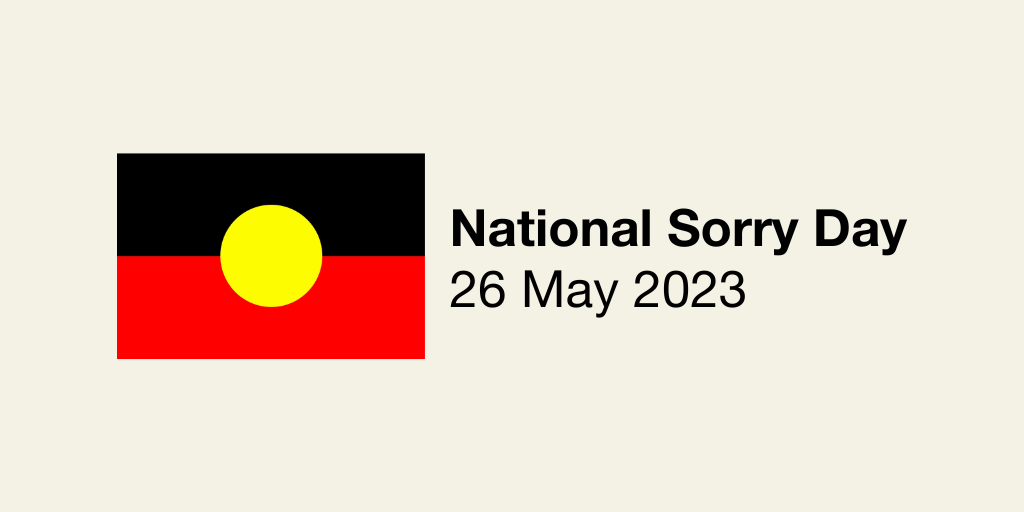
National Sorry Day 2023
Today we mark National Sorry Day. In recognising this day of reflection, mourning, and healing, we share the voices of several Aboriginal Staff from Australian Childhood Foundation. This blog acknowledges their perspectives on the structural violence and intergenerational harms that continue to impact upon child and families across this land. Today, as an organisation we place these powerful voices at the front. We recognise the importance of the lived experience of Aboriginal workers across our sector and their role in supporting children and young people to heal and grow, safe and strong in culture, families and communities.
What does Sorry Day mean to you?
“Sorry Day represents a beginning point in a very long timeline of healing and reconciliation for Aboriginal and Torres Strait Island and mainstream communities. However, we still have a long way to go. I am thankful that the Stolen Generation were finally acknowledged for all wrongdoings which have impacted their lives and the lives of their families and the generations that have followed them in ways that are still largely misunderstood.”
“For me, Sorry Day is a day to reflect on what it means to be Aboriginal in a world with laws and governing systems that do not understand our Lore and ancient ways of respect and caring for each other and the world.”
“Sorry Day is a day of mourning, because of the treatment my people experienced due to the harm of forced removals, and colonisers’ genocidal intentions. The legacy of Stolen Generations continues.
For me, Sorry Day is a reminder of the pain and hurt Aboriginal families and children hold. I reflect on the trauma and transgenerational trauma that my people have and continue to experience from these harmful policies and practices, and the barriers that exist to healing. It is not only historic; it is ever-present. We cannot heal until the harm is discontinued and some genuine change occurs.”
Do you remember where you were when then Prime Minister, Kevin Rudd made his apology speech?
“I was involved in hosting a community gathering for Elders to watch the apology and then had time to reflect and yarn with the Elders. I didn’t realise the privilege that moment held until now looking back. A number of those elders have since passed and I got to listen to their hurt, their trauma stories and their inspirational journies”.
“I was working at Western Sydney Community Aboriginal Corporation and watched it with the leadership team. It was a day that I will remember as significant in bringing us together.”
“I was watching the speech and crying for the pain my people have and still experience today from systemic harm.”
Do you think we have made any progress towards reconciliation since that day?
“I would love to say yes, but I do not feel as a nation that we have progressed much. We still see entrenched racism, whether that is unconsciously expressed or intentionally. It is still very real, and we live amongst it every day.”
“I think the willingness to do better is there, but there is a general lack of knowledge in how to respond and engage with meaningful cultural change. We need increased representation in all domains of our sector, which is appropriately compensated for providing cultural expertise and lived experience.”
“No! More than two decades following the ‘Bringing them home’ report and after the apology, the number of Aboriginal children being removed has continued to rise with no real systemic change, despite the many reports and policies that have been implemented to facilitate change. The effect of trauma and transgenerational trauma experienced is evident and correlates to negative outcomes in multiple domains of the determinants of health and well-being for Aboriginal people. Reconciliation is tokenistic unless it is actioned. Saying ‘sorry’ means, you don’t do it again, however, Aboriginal children and young people continue to be over-represented within the child protection system and the number of Aboriginal children in care now exceeds the number of Stolen Generations.”
